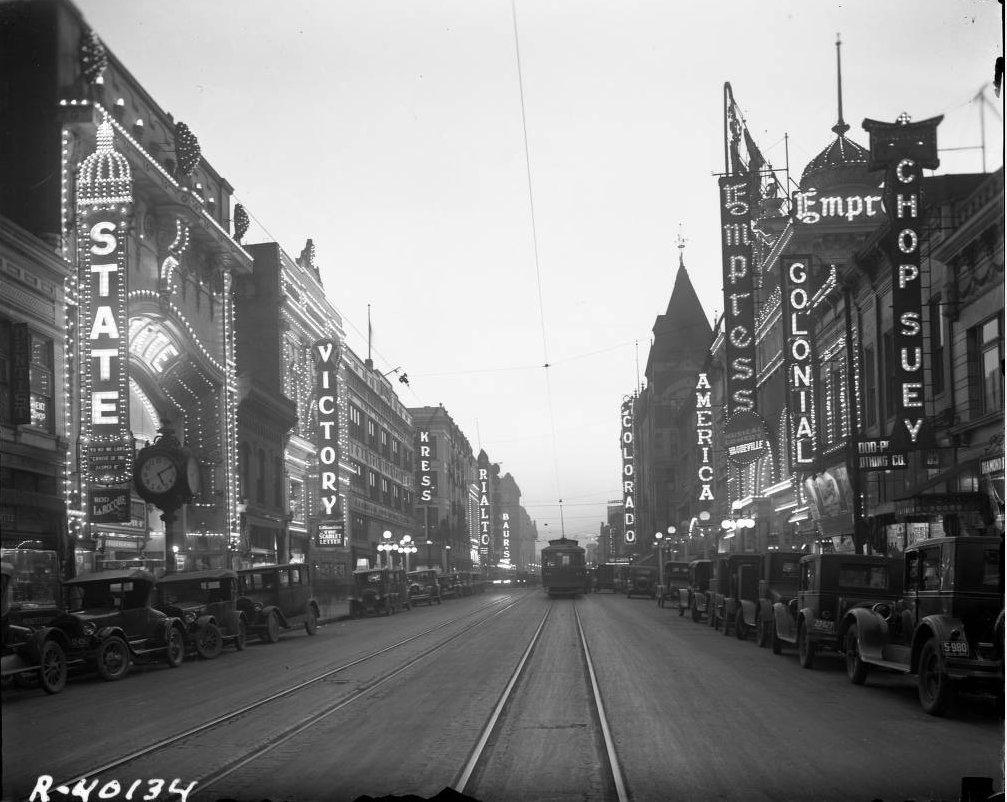
Are you ready to feel a little sad? Just look at what Curtis Street once looked like.
Denver was once home to an almost surprising number of beautiful theaters. Not surprising because of some cowtown notion -- surprising because almost all traces of them have been erased.
As it turned out, the '60s and '80s were not a good time to be a historic theater (though they were a pretty good time to be a Barry Fey venue). Almost every single one of the theaters listed below was demolished in those decades.
Let's look back on what we lost.
Aladdin Theatre
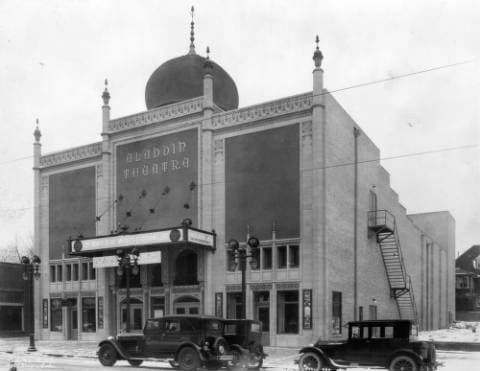
2000 E. Colfax Ave.
Opened: October 1926
Demolished: August 1984
Now: Walgreens
If you've ever wondered why the old liquor store on Colfax and Race is called Aladdin Liquors, this might explain it.
The Aladdin Theatre was built by Harry E. Huffman, who was known in Denver as "Mr. Movies" in the 1920s and 30s, according to this Denver Public Library guide to East Colfax history. The 911-seat theater presented movies, plays and concerts. Upon its opening, Denver Post writer A. DeBernardi described it as "an entrancing dream, a living vision."
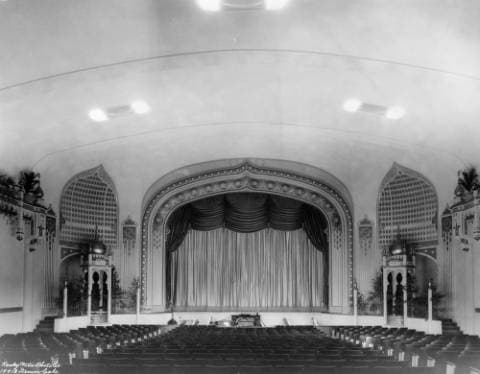
Capitol Hill United Neighbors fought to save the building by getting it landmark designation, but didn't complete the task before it was demolished. These delightfully '80s 9News reports catalog that saga (with an excellent cameo from a business owner in a cowboy hat). According to those broadcasts, the initial plan was to put a relatively big building of condos and offices on the plot. The developer says he was open to someone saving the theater, but no one came forward.
The Orpheum Theater
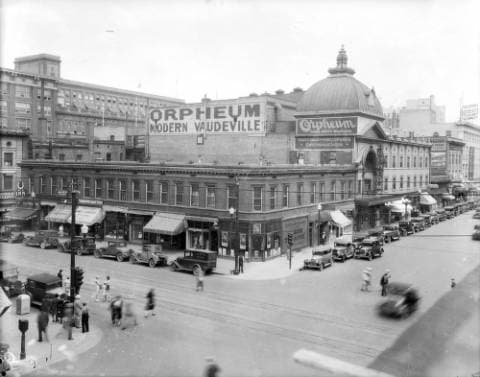
1513 Welton St.
Opened: 1903
Demolished: 1967
Now: Parking lot
Denver's Orpheum Theater was part of the Orpheum Circuit, a chain of movie and vaudeville theaters. According to Cinema Treasures, it was built in 1903, demolished in 1930 to build a new Orpheum, remodeled in 1955 and 1964, then finally closed and demolished in 1967. At the time of its closing, the capacity was 1,200, but the 1955 renovation once had it at 2,600.
The Denver Theater
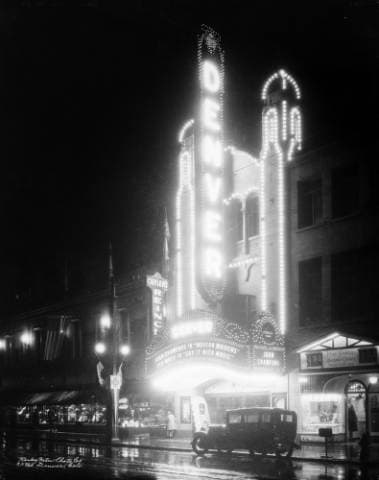
510 16th St.
Opened: 1927
Demolished: 1980
Now: H&M
Take a look at this postcard from the 1950s. It shows the Denver and Paramount theaters across from each other on 16th Street, pre-mall.
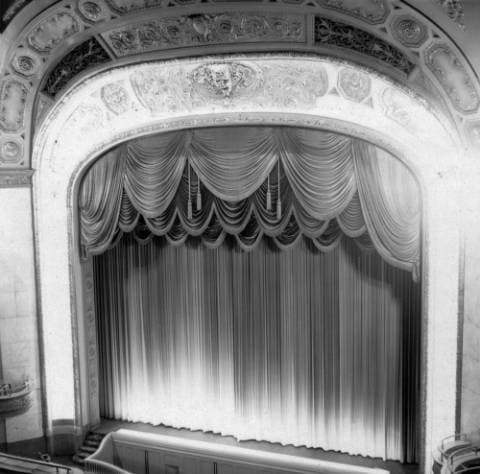
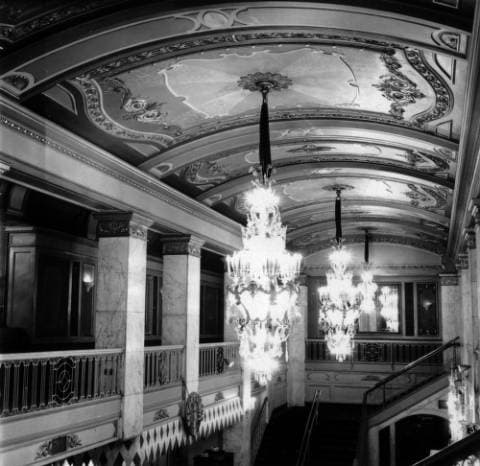
The Victory Theater
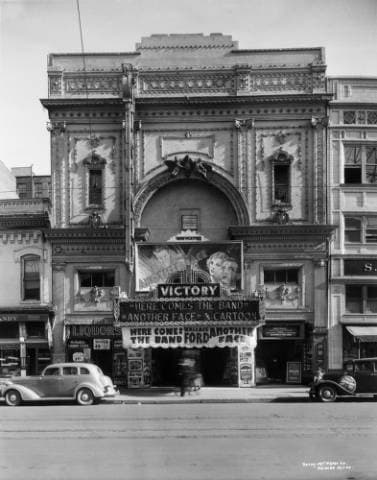
1660 Curtis St.
Opened: 1910
Closed: 1940
Now: U.S. Bank Tower
When it was originally built, the Victory was first called the Princess Theater. It was part of Denver's Theater Row -- a strip of venues on Curtis Street -- and renamed the Victory Theater in 1919 in honor of the men who fought in WWI, according to Cinema Treasures.
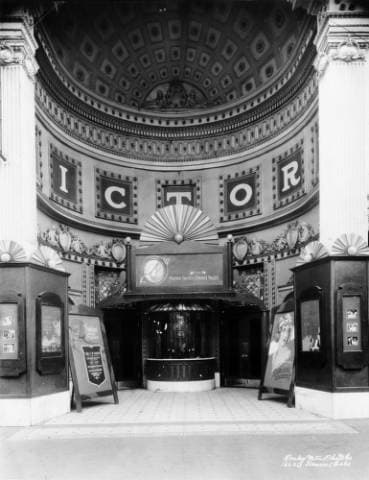
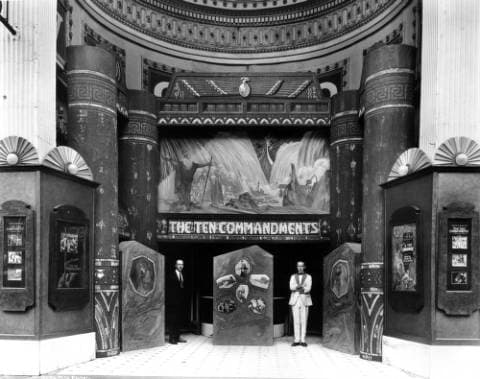
Tabor Grand Opera House
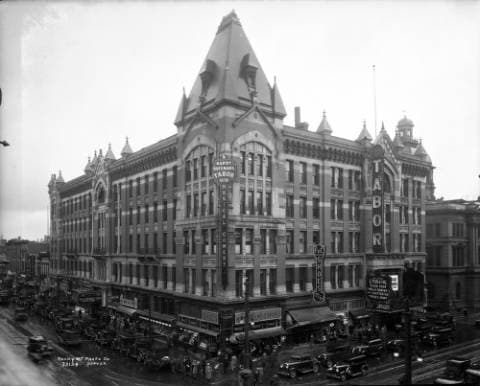
16th and Curtis streets
Opened: 1881
Demolished: 1964
Now: Federal Reserve Bank of Denver
The Tabor Grand Opera House began with Horace A.W. Tabor, who made his fortune from silver mines in Leadville, where he opened his first opera house, Cinema Treasures reports. It survived the emergence of movies with a remodel in 1921, when it was renamed the Colorado Theater. The name didn't stick, though. It was changed back to the Tabor around 1930. Talk of demolishing the opera house in order to build offices started around 1945, but the Tabor held on for almost another two decades.
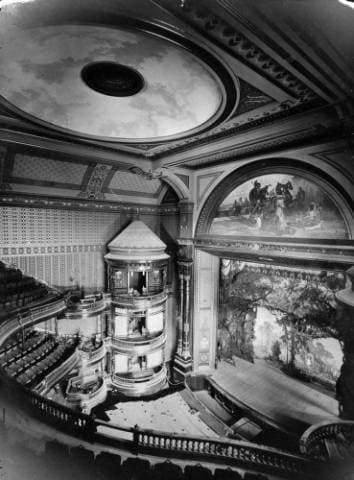
Efforts to at least preserve the theater's famous painted curtain were... all but nonexistent. Cinema Treasures says it went into storage with the Central City Opera House Association because it was too large to display. It eventually disintegrated and was thrown out.
The Tabor Opera House in Leadville is still standing, so at least there's that.
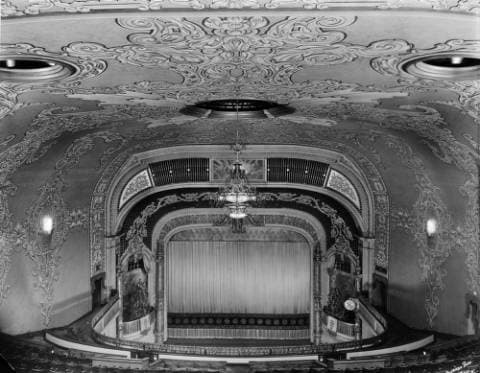
The Empress Theater
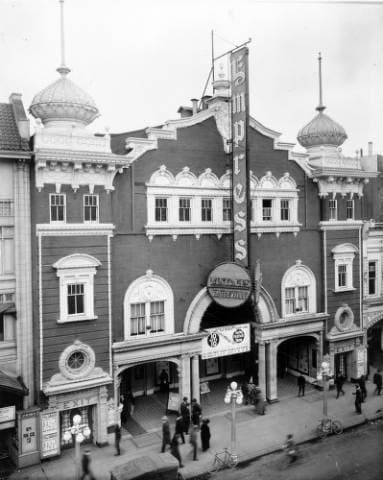
1625 Curtis St.
Opened: 1907
Demolished: 1969
Now: 16th Street Center parking garage
The Empress -- originally the Majestic -- got its name sometime around 1913 when Denver Post owners Frederick Bonfils and Harry Tammen bought it.
A story in the Denver Post archive says, "In addition to the vaudeville acts that were popular at the time, they encouraged anything that would draw a crowd. They sponsored Charleston marathons and banana eating contests. They held saxophone, fiddle and harmonica playing competitions. There were car giveaways and lectures on dressmaking. Psychics, acrobats and flagpole sitters were hired to perform. One pole sitter set a record of 602 hours."
This is possibly the most 1920s thing ever described.
When Bonfils died in 1933, the Post reported, the theater closed for a few months. Eventually, in 1936 his estate sold it for $75,000 and it was renamed the Center Theater.
By 1940, it became the New Victory Theatre. Things then got really confusing when, as Cinema Treasures notes, a new marquee just said "Victory." In its final years, the (New) Victory/Center/Empress was housing burlesque shows and adult films..
Rialto Theater
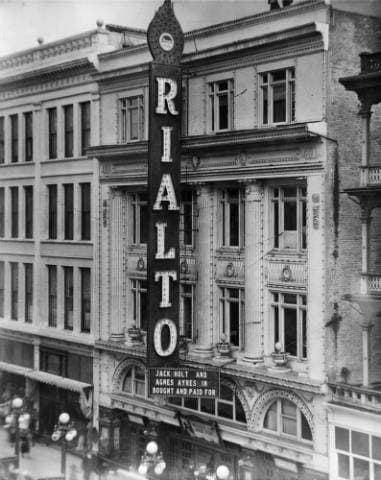
1540 Curtis St.
Opened: 1913
Demolished: ????
Now: Courtyard Marriott, Starbucks and the Rialto Café
Not to be confused with the Rialto Theater Center in Loveland, the Rialto Theater once stood in on the site of the building that houses the Rialto Café.
There's not a lot of info readily available on this one. Cinema Treasures says it was originally called the United States Theater, putting it among all the other theaters on Curtis Street so creatively named for a reference to their location.
Rainbow Music Hall
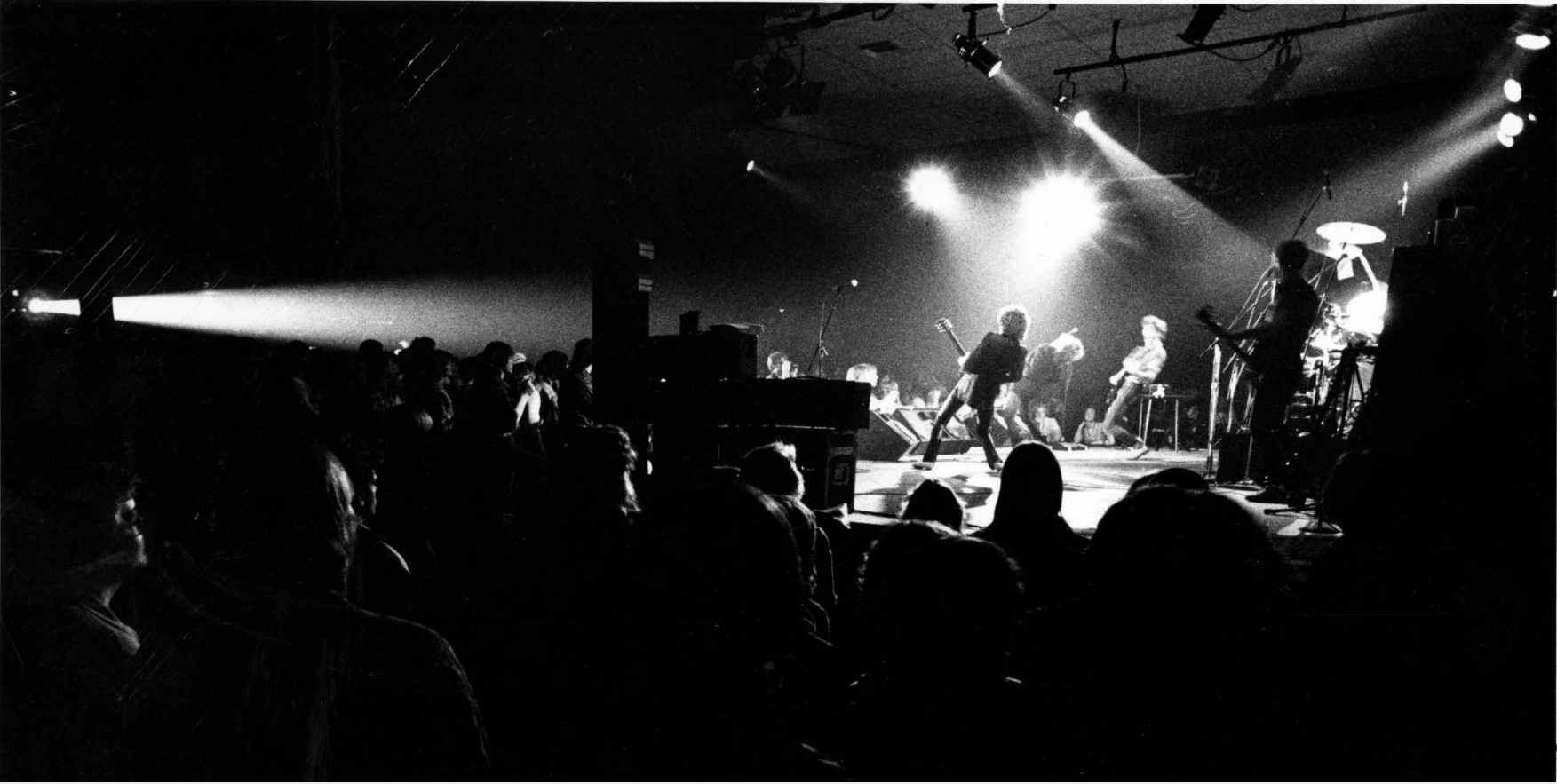
6360 E. Evans Ave.
Opened: 1979
Closed: 1989
Now: Walgreens
Colorado Music Hall of Fame concert promoter Barry Fey opened the Rainbow Music Hall in 1979 and spent a decade filling the venue with the biggest names touring at the time -- U2, Black Flag, Bob Dylan -- and up-and-comers like R.E.M.
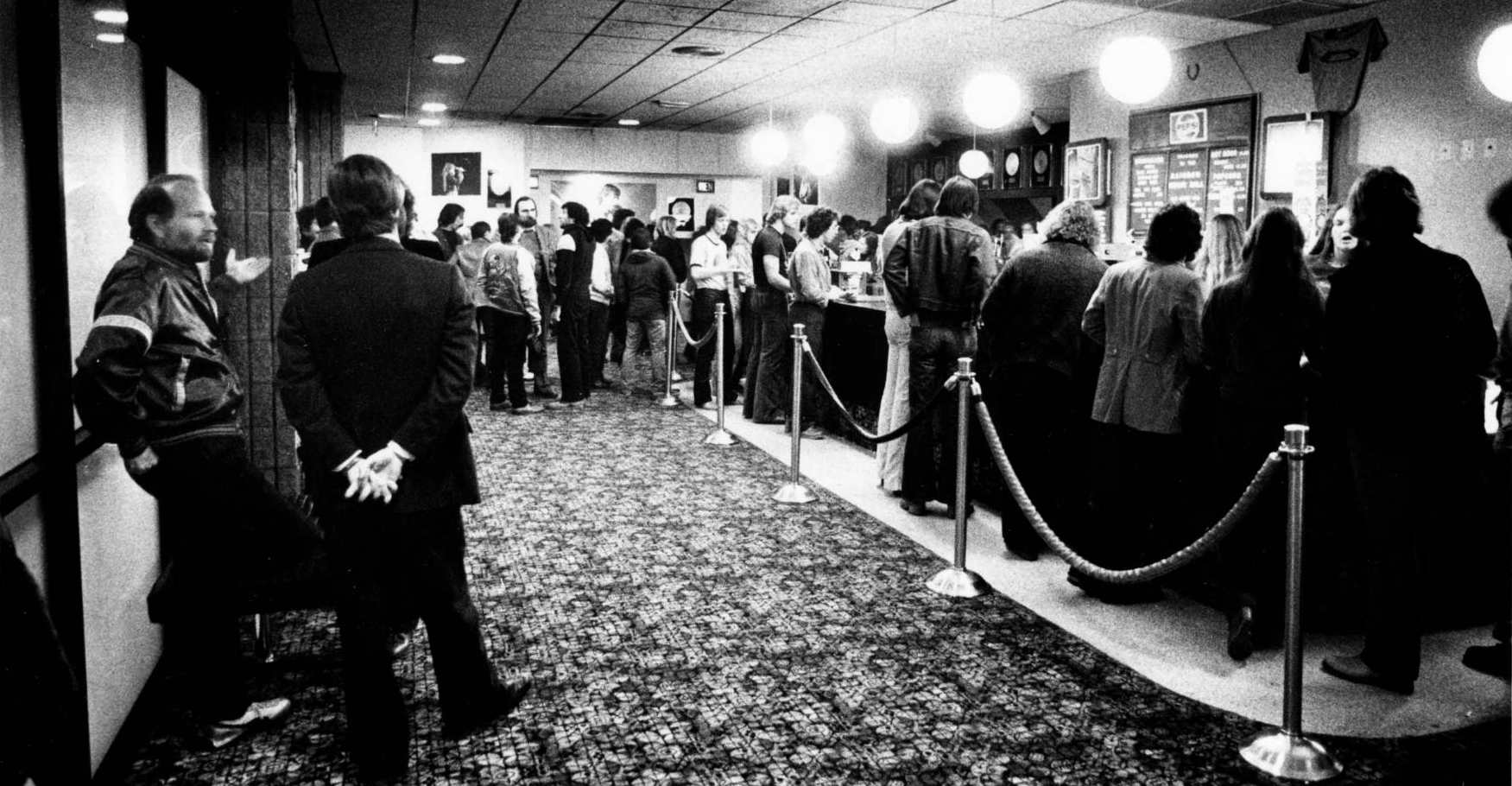
You can read a lot more about this place's history from the Denver Public Library, including this quote from the Rocky Mountain News in which Fey says music is for the kids long before Kanye ever scolded a VMA audience about it:
"This place means more to me than just opening a concert hall. This is pride, man. I'm partners with the kids. They're the ones that made it possible. Music means more to Denver than someplace else. You couldn't make this happen in Cleveland and Detroit. We're caretakers for the kids who go there. It's their place."
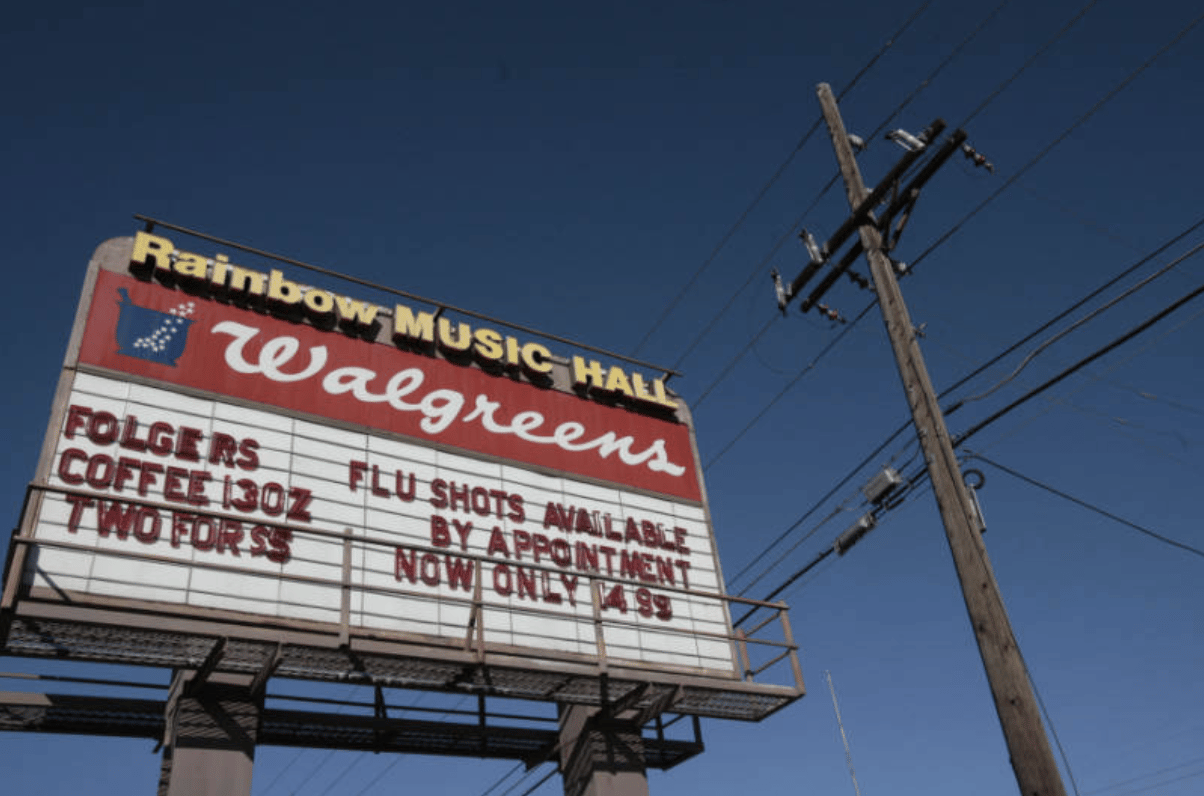
When Walgreens bought Rainbow Music Hall in 1989, it kept the marquee, but the sign had to be taken down in 2009 when a strip mall was built next door in what had been the parking lot.
The Family Dog
1601 West Evans Ave.
Opened: 1968
Closed: 1969
Now: PT’s Showclub
Another Barry Fey-run venue, The Family Dog had a brief but glorious life.
According to the Colorado Music Hall of Fame, the first show featured Janis Joplin with Big Brother & The Holding Company. In its short time operating, the 2,500-seat venue hosted the likes of the Doors, the Grateful Dead, the Byrds, Buffalo Springfield, Van Morrison, Canned Heat, Jefferson Airplane, Frank Zappa and Cream. The most expensive ticket ever sold, the Hall of Fame says, was a $4.50 ticket to see the Doors on New Year's Eve.












